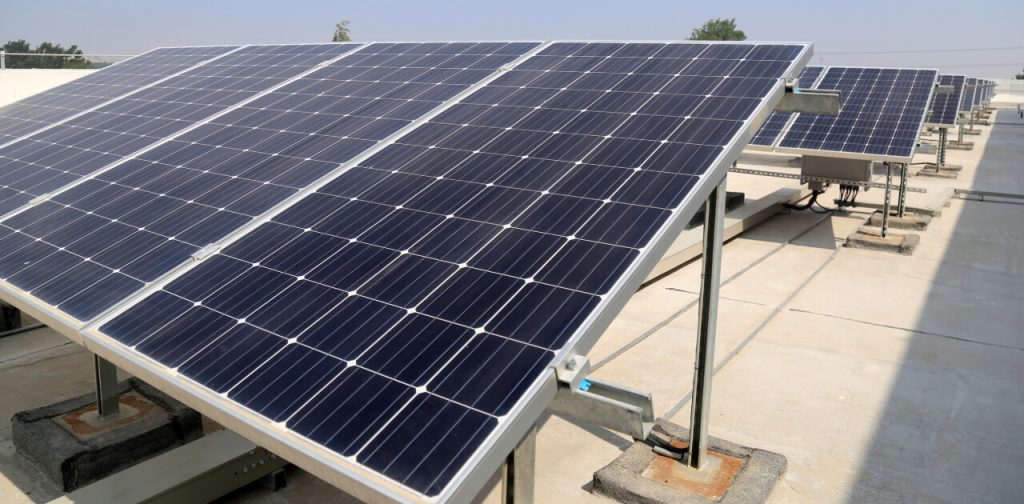As the solar industry continues to evolve, two prominent options have gained considerable attention: ground-mounted vs Rooftop solar installations. While both offer to harvest the sun’s energy to power our homes and businesses, they have unique advantages and disadvantages, presenting the pros and cons of ground-mounted solar and the advantages of rooftop solar.
Ground-Mounted Solar:Ground-mounted solar installations, as the name suggests, are solar panels set up on the ground, often within a designated solar farm. This arrangement offers several compelling benefits:
- Optimal Exposure: Solar arrays can be strategically positioned to capture maximum sunlight throughout the day. This results in higher energy production and increased efficiency, making them an excellent choice for areas with ample available land.
- Scalability: These systems are more scalable, making them suitable for larger installations, including utility-scale projects. Their flexibility allows for easy expansion, which is especially advantageous for businesses or communities with growing energy needs.
- Maintenance Accessibility: Ground-mounted systems are generally easier to access for cleaning, maintenance, and repairs. This accessibility can contribute to a prolonged system lifespan and lower maintenance costs.
Rooftop Solar: Rooftop solar installations involve mounting solar panels on the rooftops of buildings, whether residential, commercial, or industrial. This approach offers its own set of advantages:
- Space Utilization: Rooftop solar transforms otherwise unused rooftop real estate into a productive energy generator. This can be particularly advantageous in urban areas where ground space is limited.
- Distributed Energy Generation: It promotes distributed energy generation, lowering the demand for long-distance power transmission and relieving strain on the electrical grid.
- Aesthetics and Integration: Rooftop solar is less visually obtrusive compared to ground-mounted systems. The panels blend seamlessly with the building’s design, making them an attractive option for residential and commercial properties.
- Energy Consumption Offset: Rooftop solar allows homeowners and businesses to offset a significant portion of their energy consumption, potentially leading to lower electricity bills over time.
Choosing between the two depends on space availability, efficiency, and cost considerations, highlighting the ground mount vs rooftop solar cost:
- Available Space: The amount of available space is a primary consideration. Ground-mounted solar may be more suitable for larger installations, while rooftop solar is ideal for maximizing space utilization in constrained areas.
- Cost and Budget: Ground-mounted systems may have higher upfront costs due to land acquisition and additional infrastructure. Rooftop installations could be more cost-effective since they use existing structures.
- Energy Needs: Your energy consumption and goals will influence which option is most appropriate. Larger energy needs may lean toward ground-mounted solar, while smaller-scale needs could find a solution in rooftop installations.
- Aesthetics and Regulations: Aesthetic preferences, local building codes, and zoning regulations can impact your choice. Rooftop solar may have fewer aesthetic restrictions, while ground-mounted systems could face more permitting challenges.
In conclusion, both ground-mounted and rooftop solar installations have their distinct advantages, and the choice between them depends on your specific circumstances, energy requirements, available space, and budget. Consulting with solar energy professionals can provide valuable insights tailored to your needs.





